China to Singapore Shipping Agent
The Ultimate Guide
Shipping From China to Singapore: The Ultimate Guide 2024
Table of Contents
Over the past decade, the trade relationship between China and Singapore has grown significantly, driven by both nations’ strategic partnerships and robust economic cooperation. According to customs data, bilateral trade between China and Singapore reached over USD 115 billion in 2024, making China Singapore’s largest trading partner. Singapore is a key hub in the ASEAN region and a gateway to Southeast Asia, relying on imports from China to supply various industries, including electronics, machinery, textiles, and consumer goods.
Among the top traded products, electronics and electrical machinery dominate, accounting for over 40% of imports. Other essential categories include construction materials, apparel, and industrial equipment. The consistent demand underscores China’s position as a leading global supplier, offering competitive pricing, high-quality goods, and vast product diversity.
For foreign procurement managers and importers in Singapore, understanding the logistics of shipping goods from China is critical. This guide is designed to provide a detailed roadmap of the shipping process, enabling you to minimize costs, navigate challenges, and streamline operations. Whether you are exploring air freight, sea freight, or express shipping, this article will help you make informed decisions tailored to your needs.
Freight Shipping Cost from China to Singapore
When shipping goods from China to Singapore, businesses have several options depending on their budget, urgency, and shipment size. The three primary shipping methods—Air Freight, Sea Freight, and Express Shipping—offer distinct cost structures and transit times. Here’s a brief overview:
Air Freight Shipping:
Air freight is ideal for urgent shipments or high-value goods. Though it is more expensive than sea freight, it ensures faster delivery. For large shipments (1000 kg or more), air freight costs typically range between USD 3.5 and USD 5 per kg, with a transit time of 2–3 days from major Chinese cities such as Guangzhou or Shanghai to Singapore.Sea Freight Shipping:
Sea freight is the most economical option for bulk cargo. Full Container Load (FCL) for a 20-foot container to Singapore costs between USD 300 and USD 500, while a 40-foot container ranges from USD 600 to USD 1,000. Transit times average 10–14 days, depending on the port of origin.Express Shipping:
Express shipping, offered by carriers like DHL, FedEx, and UPS, is the fastest but most expensive option. Costs range from USD 8 to USD 15 per kg for packages under 100 kg, with delivery times of 1–2 days.
Below is a detailed breakdown of Air Freight Shipping Costs to Singapore:
Air Freight Shipping Cost from China to Singapore
| Shipping Mode | Unit | Price Range (USD) | Transit Time |
|---|---|---|---|
| Air Freight (1000 kg +) | Per kg | 3.5–5.0 | 2–3 days |
| Air Freight (300–1000 kg) | Per kg | 4.0–6.0 | 2–3 days |
| Air Freight (less than 300 kg) | Per kg | 6.0–8.0 | 2–3 days |
Advantages and Disadvantages of Air Freight
Advantages:
- Speed: Air freight is the fastest shipping method, perfect for urgent deliveries or perishable goods.
- Reliability: Airlines adhere to strict schedules, reducing delays.
- Security: Air cargo undergoes rigorous safety checks, minimizing theft or damage risks.
Disadvantages:
- Cost: Air freight is significantly more expensive than sea freight.
- Weight and Volume Restrictions: Not ideal for bulky or heavy items due to high costs.
- Environmental Impact: Higher carbon emissions compared to sea freight.
Suitable Products for Air Freight:
- High-value goods (e.g., electronics, jewelry).
- Perishable items (e.g., food, pharmaceuticals).
- Time-sensitive shipments (e.g., seasonal fashion, urgent spare parts).
Sea Freight Shipping Cost from China to Singapore
Sea freight is the most economical option for shipping large volumes of goods from China to Singapore. This method is commonly chosen for its cost-effectiveness, especially for shipments exceeding 1 cubic meter or for bulk cargo. Despite being slower than air freight, the relatively short distance between China and Singapore makes sea freight a practical option, with transit times averaging 10–14 days.
The cost of sea freight varies depending on whether you choose FCL (Full Container Load) or LCL (Less than Container Load) shipping. Below is a detailed breakdown of the costs associated with shipping containers to Singapore:
Ocean Shipping Costs from China to Singapore
| Shipping Mode | Shipping Cost (USD) |
|---|---|
| FCL (20-foot container) | 300–500 |
| FCL (40-foot container) | 600–1,000 |
| LCL (1 cubic meter, <15 CBM) | 30–50 per cubic meter |
Advantages and Disadvantages of Sea Freight
Advantages:
- Cost-Effectiveness: The most affordable method for large or heavy cargo.
- Capacity: Suitable for shipping high-volume goods, such as industrial equipment or bulk consumer products.
- Sustainability: Lower carbon footprint per ton compared to air freight.
Disadvantages:
- Time: Transit times are longer, typically 10–14 days to Singapore.
- Port Charges: Additional fees for handling at ports may apply.
- Weather Dependence: Delays may occur due to bad weather conditions.
Suitable Products for Sea Freight:
- Non-urgent goods (e.g., furniture, machinery, textiles).
- Heavy or bulky items (e.g., raw materials, construction materials).
- Large-volume shipments (e.g., wholesale products, industrial equipment).
Express Shipping Cost from China to Singapore
Express shipping is the fastest way to transport goods from China to Singapore, ideal for urgent shipments or small packages. Global carriers like DHL, FedEx, and UPS dominate this space, offering reliable, door-to-door services. With a transit time of 1–2 days, express shipping is particularly suitable for businesses needing swift delivery of time-sensitive or high-value products.
Although convenient, express shipping is the most expensive shipping option. Costs vary depending on the carrier, package size, and weight. Below is an overview of typical costs:
| Carrier | Shipping Cost (USD/kg) | Transit Time |
|---|---|---|
| DHL | 8–12 | 1–2 days |
| FedEx | 9–14 | 1–2 days |
| UPS | 10–15 | 1–2 days |
Benefits and Use Cases for Express Shipping
- Speed: Express shipping delivers in as little as 1–2 days, making it the fastest option for urgent deliveries.
- Convenience: Door-to-door service eliminates the need for intermediaries, simplifying logistics for the shipper.
- Reliability: Precise tracking and predictable transit times ensure that goods reach their destination on schedule.
- Security: Carriers provide robust handling, safeguarding high-value items from theft or damage.
- Perfect for Small Packages: Suitable for lightweight goods like samples, electronics, or luxury items.
Use Cases for Express Shipping:
- Sending product samples or prototypes to clients.
- Delivering e-commerce orders to Singapore customers.
- Shipping perishable or urgent goods that require quick delivery.
- Transporting documents or small, high-value items.
Door-to-Door Shipping from China to Singapore
Door-to-door shipping is a comprehensive logistics solution that covers the entire shipping process, from the supplier’s location in China to the recipient’s address in Singapore. It is particularly advantageous for importers who prefer a hassle-free experience, as the freight forwarder handles all aspects of the shipment, including pickup, customs clearance, and delivery.
With door-to-door shipping, businesses can opt for different transportation modes such as air freight, sea freight, or express shipping. This method is especially popular among small- and medium-sized enterprises (SMEs) that lack in-house logistics expertise.
DDP Shipping Cost from China to Singapore
Delivered Duty Paid (DDP) is a common arrangement for door-to-door services. The supplier or freight forwarder assumes responsibility for customs duties, taxes, and other related fees, offering the client a single, all-inclusive cost.
| Shipping Mode | Price Range (USD) | Details |
|---|---|---|
| Air Freight (DDP) | 6–10 per kg | Transit time: 4–7 days |
| Sea Freight (DDP) | 100–150 per CBM | Transit time: 12–15 days |
| Express (DDP) | 12–18 per kg | Transit time: 3–5 days |
For precise pricing tailored to your shipment, please contact MBMLOG’s 24/7 online customer service for a free consultation.
How Long is DDP Shipping from China to Singapore?
- Air Freight: 4–7 days.
- Sea Freight: 12–15 days.
- Express: 3–5 days.
DDP shipping times may vary based on the shipment size, customs clearance requirements, and the shipping method chosen.
Advantages of Door-to-Door Services
Convenience:
Door-to-door shipping simplifies the process by allowing one service provider to handle pickup, customs clearance, and delivery, saving time and effort.Transparent Costs:
DDP ensures importers receive a single, upfront price that includes all fees, eliminating unexpected costs or complications.Reduced Risk:
Freight forwarders with door-to-door services take full responsibility for the shipment, reducing the risk of delays or errors during transit.Customizable Options:
Door-to-door shipping offers flexibility in choosing the most suitable transportation mode (air, sea, or express) based on budget and urgency.Professional Assistance:
Experienced freight forwarders provide end-to-end guidance, from documentation preparation to customs clearance, ensuring a seamless experience.
Understanding Singapore’s Import Tax, Duties, and VAT Cost
Singapore is renowned for its business-friendly environment, and its trade policies reflect this. The country imposes minimal import duties, which makes importing goods relatively straightforward. Most goods entering Singapore are duty-free, with exceptions for specific categories such as alcoholic beverages, tobacco products, motor vehicles, and certain petroleum products. However, Goods and Services Tax (GST) applies to all imports.
The current GST rate in Singapore is 9% (effective 1 January 2024) and is calculated based on the Cost, Insurance, and Freight (CIF) value of the goods, including duties, if applicable. Understanding these costs ensures importers can plan their budgets effectively and avoid unexpected expenses.
Key Points About Singapore’s Import Taxes
- Duty-Free Imports: Most goods, including electronics, textiles, and machinery, are exempt from customs duties.
- GST (Goods and Services Tax): Applies to all imports, calculated at 9% of the CIF value.
- Customs Duties: Applicable only to specific products like alcohol, tobacco, and motor vehicles.
Import Tax, Duties, and GST Costs for Popular Products
| Products | Custom Duties | GST Cost (9%) |
|---|---|---|
| Electronics | 0% | Based on CIF value |
| Machinery | 0% | Based on CIF value |
| Apparel | 0% | Based on CIF value |
| Furniture | 0% | Based on CIF value |
| Industrial Equipment | 0% | Based on CIF value |
| Alcoholic Beverages | 15–30% | Based on CIF value |
| Tobacco Products | SGD 427.20/kg | Based on CIF value |
| Motor Vehicles | Varies (specific rates) | Based on CIF value |
| Petroleum Products | Varies (specific rates) | Based on CIF value |
| Cosmetics | 0% | Based on CIF value |
| Pharmaceuticals | 0% | Based on CIF value |
| Food Products (Non-Alcoholic) | 0% | Based on CIF value |
| Plastic Products | 0% | Based on CIF value |
| Toys | 0% | Based on CIF value |
| Construction Materials | 0% | Based on CIF value |
Navigating Legal Compliance When Shipping from China to Singapore
Ensuring legal compliance is a critical step when shipping goods from China to Singapore. Singapore has strict regulations to maintain the safety and quality of imported goods, and understanding these requirements will help importers avoid costly delays or penalties. Compliance involves adhering to customs requirements, providing accurate documentation, and meeting specific product certifications where applicable.
Key Compliance Requirements
Accurate Documentation:
All shipments to Singapore must be accompanied by proper documentation, including:- Commercial Invoice
- Packing List
- Bill of Lading or Air Waybill
- Certificate of Origin (if applicable for trade agreements)
- Import Permit (obtained via Singapore Customs’ TradeNet system)
Customs Declaration:
Importers must declare their shipments accurately, including the Harmonized System (HS) codes, values, and quantities. Incorrect declarations can lead to fines or shipment confiscation.Product-Specific Certifications:
Certain products require additional certifications:- Electronics: Compliance with Singapore’s Infocomm Media Development Authority (IMDA) regulations.
- Food Products: Approval from the Singapore Food Agency (SFA) and adherence to food labeling standards.
- Pharmaceuticals and Cosmetics: Licensing from the Health Sciences Authority (HSA) and compliance with safety standards.
Restricted and Prohibited Goods:
Singapore strictly regulates or prohibits certain imports, such as:- Firearms and explosives
- Endangered species and products derived from them
- Hazardous chemicals without proper permits
Trade Agreements:
Utilizing trade agreements like the ASEAN-China Free Trade Agreement (ACFTA) can reduce or eliminate tariffs for eligible goods. Ensure the Certificate of Origin is included to claim these benefits.
Required Certifications for Popular Product Categories
| Product Type | Required Certification |
|---|---|
| Electronics | IMDA Compliance |
| Pharmaceuticals | HSA Approval |
| Food Products | SFA Approval |
| Cosmetics | HSA Safety Certification |
| Machinery | CE or ISO Certification |
| Toys | EN71 Safety Standards |
| Chemicals | SDS (Safety Data Sheet) Compliance |
By understanding and adhering to these regulations, importers can ensure a smooth process when shipping from China to Singapore.
Factors Affecting Transit Times and Mitigation Strategies
When shipping goods from China to Singapore, transit times can vary due to multiple factors. Understanding these variables and implementing mitigation strategies can help ensure smoother operations and on-time delivery.
Key Factors Affecting Transit Times
Weather Conditions:
Adverse weather, such as typhoons or heavy rains, can delay sea and air shipments, especially during the monsoon season in Southeast Asia.Customs Clearance Delays:
Errors in documentation, incomplete declarations, or non-compliance with regulations can cause customs bottlenecks in both China and Singapore.Port Congestion:
High traffic at major Chinese ports, such as Shanghai or Shenzhen, can lead to delays, particularly during peak export seasons like Chinese New Year or year-end holidays.Carrier Availability:
Limited availability of shipping vessels or air freight capacity, especially during peak seasons, can result in shipment delays.Global Supply Chain Disruptions:
Events such as pandemics, strikes, or geopolitical tensions can impact transit times due to reduced shipping schedules or restrictions.
Mitigation Strategies
Plan Ahead and Book Early:
Secure bookings well in advance, especially during peak seasons, to avoid delays caused by limited carrier availability.Ensure Accurate Documentation:
Double-check all required shipping documents to prevent customs clearance issues. Using a reliable freight forwarder like MBMLOG can help ensure compliance.Monitor Weather Forecasts:
Stay updated on weather conditions and adjust shipping schedules accordingly to avoid delays caused by storms or adverse weather.Choose Trusted Freight Forwarders:
Partner with experienced logistics providers who have established networks and the ability to quickly resolve issues such as port congestion or carrier shortages.Consider Alternative Routes or Modes:
Opt for air freight during peak sea freight congestion or use less busy ports as alternatives to high-traffic ones like Shanghai or Guangzhou.
By proactively managing these factors, businesses can minimize disruptions and ensure timely delivery of their goods.
Key Ports in China and Singapore for Shipping
Ports play a crucial role in facilitating trade between China and Singapore. Understanding the key ports involved in this route helps importers optimize their shipping strategies. Below, we highlight the major ports in both countries and their strategic importance in the logistics chain.
Major Chinese Ports for Exports to Singapore
| China Port Name | Annual Throughput (TEUs) | Strategic Importance | Main Cargo Types |
|---|---|---|---|
| Shanghai Port | 47.03 million | Largest container port globally; ideal for large-scale shipments | Electronics, machinery, textiles |
| Shenzhen Port | 28.77 million | Proximity to manufacturing hubs in Guangdong | Electronics, apparel, furniture |
| Ningbo-Zhoushan Port | 31.08 million | Key port for bulk cargo; high efficiency | Industrial equipment, chemicals |
| Guangzhou Port | 23.19 million | Access to South China’s Pearl River Delta | Construction materials, textiles |
| Qingdao Port | 21.01 million | Important hub for northern China exports | Food products, machinery |
Major Singapore Ports for Imports from China
| Singapore Port Name | Annual Throughput (TEUs) | Strategic Importance | Main Cargo Types |
|---|---|---|---|
| Port of Singapore | 37.5 million | World’s second-busiest container port; critical transshipment hub | Electronics, industrial goods |
Comparing Key Ports: Advantages and Strategic Importance
| Country | Port | Advantages | Strategic Importance |
|---|---|---|---|
| China | Shanghai Port | Advanced infrastructure; global connectivity | Facilitates high-volume exports to Singapore |
| China | Shenzhen Port | Proximity to manufacturing hubs | Supports fast exports from Guangdong region |
| Singapore | Port of Singapore | Efficient transshipment operations | Connects global shipping routes |
Major Routes from China to Singapore
Shipping routes between China and Singapore are some of the busiest in the world, leveraging both sea and air pathways for efficient logistics.
Primary Sea Route:
Ships travel through the South China Sea, passing major Chinese ports (Shanghai, Shenzhen, or Guangzhou) and reaching Singapore’s Port.- Advantage: Cost-effective for large cargo.
- Disadvantage: Slower transit times (10–14 days).
Primary Air Route:
Flights from major airports in China (Beijing, Shanghai, Guangzhou) land at Singapore’s Changi Airport.- Advantage: Fast delivery (1–3 days).
- Disadvantage: Higher costs compared to sea freight.
How to Select the Right Freight Forwarder for Your Needs
Choosing the right freight forwarder is a critical decision for businesses shipping goods from China to Singapore. A reliable forwarder ensures smooth logistics, timely deliveries, and cost efficiency, while an inexperienced one can cause delays and unforeseen expenses. Below are essential criteria to help you identify the best freight forwarder for your needs.
Key Criteria for Selecting a Good Freight Forwarder
Experience and Expertise:
Look for a forwarder with a proven track record, especially for shipping routes between China and Singapore. Their familiarity with customs regulations, trade policies, and logistics networks will help prevent errors and delays.Comprehensive Service Offering:
Choose a freight forwarder that offers multiple services, including air freight, sea freight, express shipping, door-to-door services, and customs clearance.Strong Network:
A good forwarder has an extensive network of carriers, port agents, and customs brokers. This ensures flexibility in choosing routes and competitive pricing.Transparent Pricing:
The forwarder should provide clear and upfront pricing with no hidden fees. They should offer itemized quotes for freight charges, duties, and taxes.Real-Time Tracking:
The ability to track your shipment in real time is crucial. Ensure the forwarder provides tracking tools to monitor the progress of your cargo.Customer Support:
Reliable customer service is vital for resolving issues quickly. A forwarder offering 24/7 support ensures smooth communication and problem-solving.Insurance Coverage:
Verify if the forwarder provides insurance options to protect your cargo against loss, damage, or theft during transit.Compliance Knowledge:
The forwarder should be well-versed in customs regulations and compliance requirements in both China and Singapore, helping you avoid fines or shipment delays.Positive Reputation:
Research online reviews, testimonials, and case studies to assess the forwarder’s reliability and customer satisfaction.Flexibility and Scalability:
Whether you’re shipping small parcels or bulk cargo, the forwarder should cater to your needs and adapt to the changing scale of your business operations.
Benefits of Choosing MBMLOG as Your Freight Forwarder
- Proven Expertise: Over 20 years of experience in freight forwarding and customs clearance.
- Extensive Network: Partnerships with 40+ airlines and shipping lines, ensuring efficient global delivery.
- Transparent Pricing: No hidden charges, with detailed cost breakdowns.
- 24/7 Support: Always available to address your concerns and provide real-time updates.
- Custom Solutions: Tailored services like DDP shipping, FBA solutions, and warehouse storage.
By carefully evaluating these factors, you can select a freight forwarder that aligns with your logistics requirements and ensures seamless shipping operations.
How to Ship from China to Singapore: A Step-by-Step Guide
Shipping goods from China to Singapore requires meticulous planning and attention to detail to ensure a smooth and cost-effective process. Below is a step-by-step guide to help you navigate the shipping journey efficiently.
1. Preparing Your Shipment: Documentation, Packaging, and Labeling
Documentation: Ensure all required shipping documents are in place. Key documents include:
- Commercial Invoice
- Packing List
- Bill of Lading (for sea freight) or Air Waybill (for air freight)
- Certificate of Origin (if using trade agreements like ACFTA)
- Import Permits (for restricted items)
Packaging: Use durable packaging materials to protect your goods during transit. For fragile items, consider double-layered packaging and cushioning.
Labeling: Clearly label all packages with relevant details such as the recipient’s address, shipper’s details, handling instructions (e.g., fragile or flammable), and compliance labels if required.
2. Choosing the Right Freight Forwarder
- Select a reliable freight forwarder with expertise in the China-Singapore shipping route.
- Discuss your requirements, including the shipment size, preferred shipping method (air, sea, or express), and delivery deadlines.
- Request a detailed quote to understand the costs and timelines involved.
3. Navigating Customs and Tracking Your Shipment
- Customs Clearance in China: Your freight forwarder will handle customs documentation and ensure compliance with export regulations in China.
- Customs Clearance in Singapore: Provide accurate Harmonized System (HS) codes and values for the shipment. Ensure GST and any applicable duties are paid promptly.
- Tracking: Use the tracking tools provided by your freight forwarder or carrier to monitor the shipment’s progress in real-time.
4. Restricted & Prohibited Items Shipping from China to Singapore
Certain items are restricted or prohibited for import into Singapore. Ensure your goods comply with local regulations to avoid confiscation or penalties.
| Restricted/Prohibited Items | Remarks |
|---|---|
| Firearms and Explosives | Require permits from the Singapore Police Force |
| Endangered Wildlife Products | Prohibited under CITES regulations |
| Hazardous Chemicals | Require approval from the National Environment Agency (NEA) |
| Tobacco Products | Heavily taxed; specific regulations apply |
| Alcoholic Beverages | Subject to import duties and licensing |
| Pharmaceuticals | Require Health Sciences Authority (HSA) approval |
| Food Products | Subject to Singapore Food Agency (SFA) clearance |
| Lithium Batteries | Must meet safety compliance for shipping |
| Counterfeit Goods | Strictly prohibited; penalties apply |
| E-cigarettes and Vaping Devices | Restricted and require NEA approval |
| Precious Metals | Require special customs declaration |
| Currency above SGD 20,000 | Must be declared |
| Narcotics and Drugs | Strictly prohibited; severe penalties apply |
| Pornographic Materials | Illegal to import |
| Chewing Gum (for retail) | Prohibited unless therapeutic gum |
| Laser Pointers | Restricted; approval required |
5. Final Delivery and Post-Shipment Process
- Once your shipment clears customs in Singapore, the goods will be delivered to your specified location via your chosen freight forwarding service.
- Verify the delivery and inspect the goods for any damages or discrepancies.
- Maintain a record of all documentation and receipts for future reference.
This section addresses common questions importers have about shipping goods from China to Singapore, providing clarity and actionable insights.
1. How long does shipping from China to Singapore take?
- Air Freight: 2–3 days.
- Sea Freight: 10–14 days.
- Express Shipping: 1–2 days.
- DDP (Air Freight): 4–7 days.
- DDP (Sea Freight): 12–15 days.
2. What are the main shipping options from China to Singapore?
- Air Freight: Ideal for urgent shipments or high-value goods.
- Sea Freight: Best for large-volume or non-urgent shipments.
- Express Shipping: Fastest option for small parcels and samples.
- Door-to-Door (DDP): Comprehensive service that simplifies logistics by handling the entire process from pickup to delivery.
3. How do I choose the right freight forwarder for my shipping needs?
Select a forwarder with:
- Experience in China-Singapore logistics.
- Transparent pricing with no hidden fees.
- Real-time tracking capabilities.
- Reliable customer support available 24/7.
- Insurance options to protect your cargo.
4. What documents are required for shipping goods from China to Singapore?
- Commercial Invoice
- Packing List
- Bill of Lading (Sea Freight) or Air Waybill (Air Freight)
- Certificate of Origin (if applicable for duty exemptions)
- Import Permit (via Singapore’s TradeNet system)
5. What is the importance of packaging and labeling when shipping from China to Singapore?
Proper packaging ensures your goods arrive safely, while accurate labeling helps with customs clearance and delivery efficiency. Labels should include:
- Shipper and recipient details.
- Handling instructions (e.g., fragile, hazardous).
- Compliance marks (if applicable).
6. How does customs clearance work when importing from China to Singapore?
Customs clearance involves submitting accurate declarations, paying applicable duties and GST, and ensuring compliance with Singapore’s regulations. Partnering with an experienced freight forwarder simplifies this process.
7. What are the advantages of using door-to-door shipping services?
- Convenience: Comprehensive handling of all logistics.
- Cost Transparency: One upfront price, including duties and taxes.
- Time Savings: Eliminates the need for managing multiple service providers.
- Reliability: Reduces the risk of delays due to compliance issues.
8. How can I track my shipment from China to Singapore?
Freight forwarders and express carriers provide tracking tools. Using the tracking number provided, you can monitor your shipment’s progress in real time from departure to delivery.
Conclusion
Shipping goods from China to Singapore involves numerous steps, from selecting the right freight forwarder to understanding customs regulations, transit times, and costs. By following this comprehensive guide, you can streamline the logistics process, minimize expenses, and avoid common pitfalls.
Singapore’s strategic location and trade-friendly policies make it an excellent market for importing goods from China. Whether you opt for air freight, sea freight, or express shipping, each method has unique advantages tailored to different business needs. For those seeking an all-inclusive solution, door-to-door services simplify the shipping process by handling everything from pickup to delivery, ensuring a hassle-free experience.
At MBMLOG, we are committed to providing a one-stop logistics solution that caters to your specific requirements. With over 20 years of experience, a global network spanning 197 countries, and expertise in both air and sea freight, we deliver your goods safely, quickly, and at the best possible rates. Our 24/7 customer service ensures that you are always informed and supported at every step of the way.
Contact MBMLOG today to discuss your shipping needs and experience reliable, cost-effective logistics solutions. Let us help you focus on growing your business while we take care of your shipping challenges.
Send Your Enquiry Now
Our Services
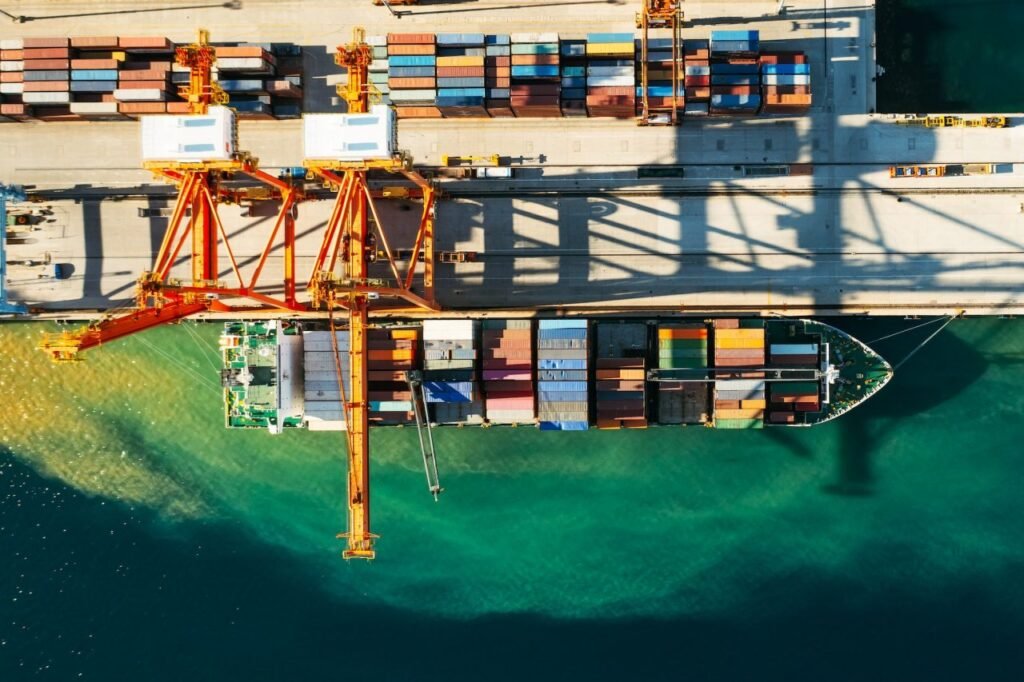
Sea Freight Shipping from China to Singapore
Enjoy cost savings with our high-capacity sea freight options, ideal for large shipments without the rush.
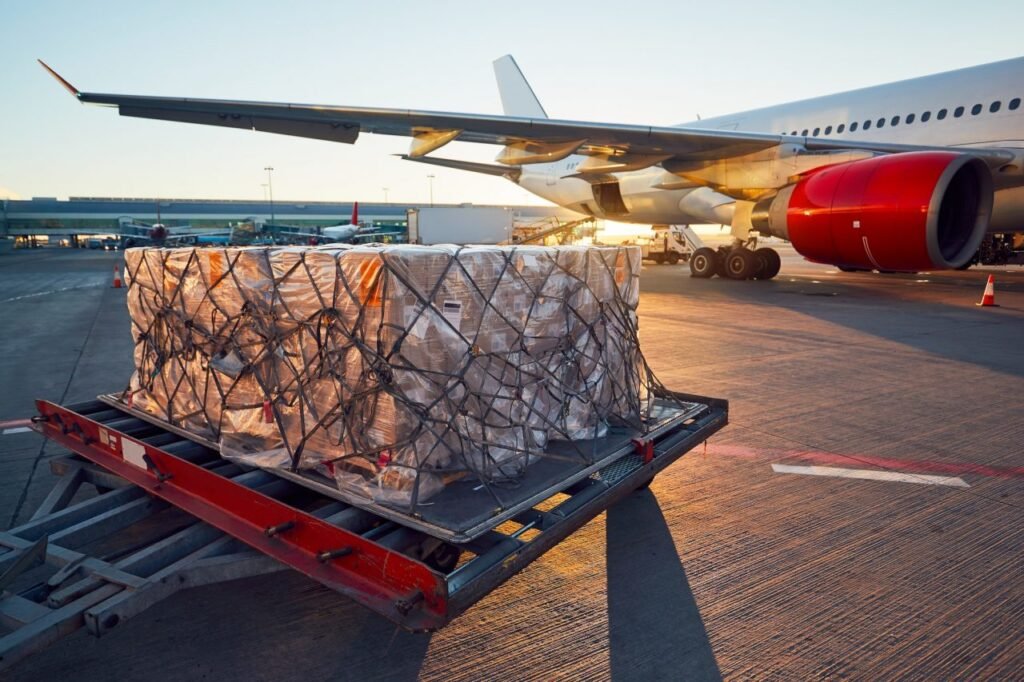
Air Freight Shipping from China to Singapore
Expedite your urgent shipments with our air freight services, ensuring your business stays on schedule.

Door to Door Shipping from China to Singapore
Experience hassle-free shipping with our door-to-door service, covering all logistics from pickup to delivery.
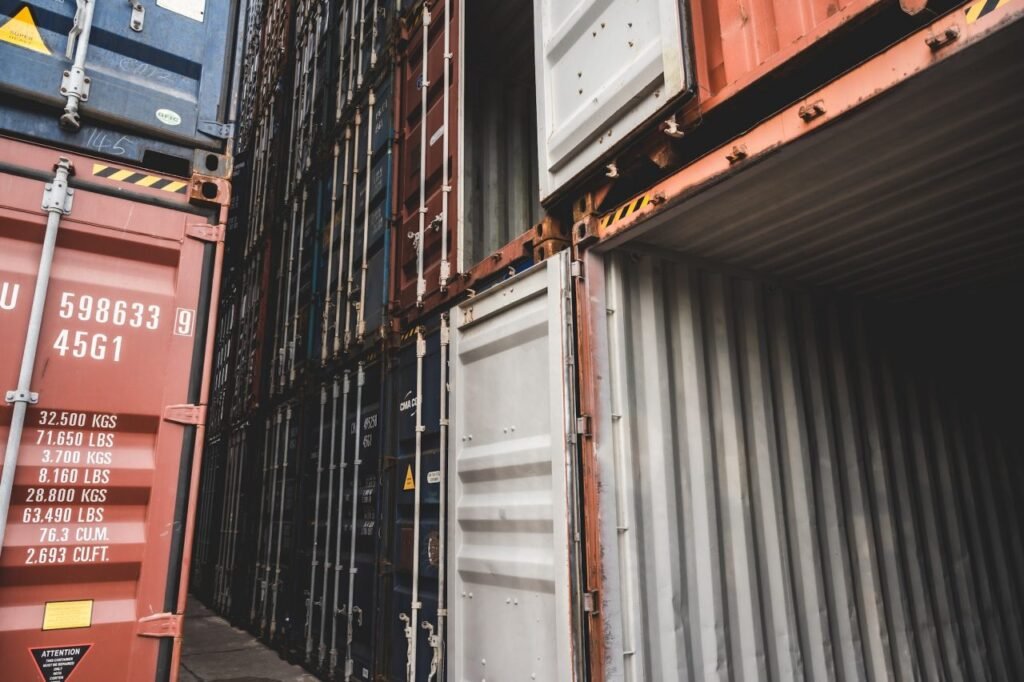
Cheapest Shipping From China to Singapore
Maximize your budget with our affordable shipping solutions, designed to deliver cost-effective and reliable transport.
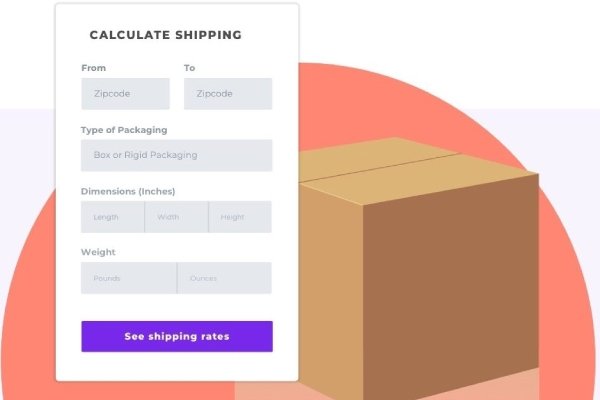
How long/much Shipping from China to Singapore
Plan effectively with our clear and upfront information on timelines and costs, empowering your business decision-making.
FCL Shipping From China to India
Mbmlog’s FCL Shipping service can secure your large shipments with Full Container Load (FCL) shipping, ensuring your cargo travels together without disruptions, perfect for bulk goods needing robust protection.
LCL Shipping From China to India
Benefit from the flexibility of Less than Container Load (LCL) shipping, which allows you to send smaller shipments more frequently, helping manage inventory effectively without the need to fill a full container.
Additional services for shipping from China to India
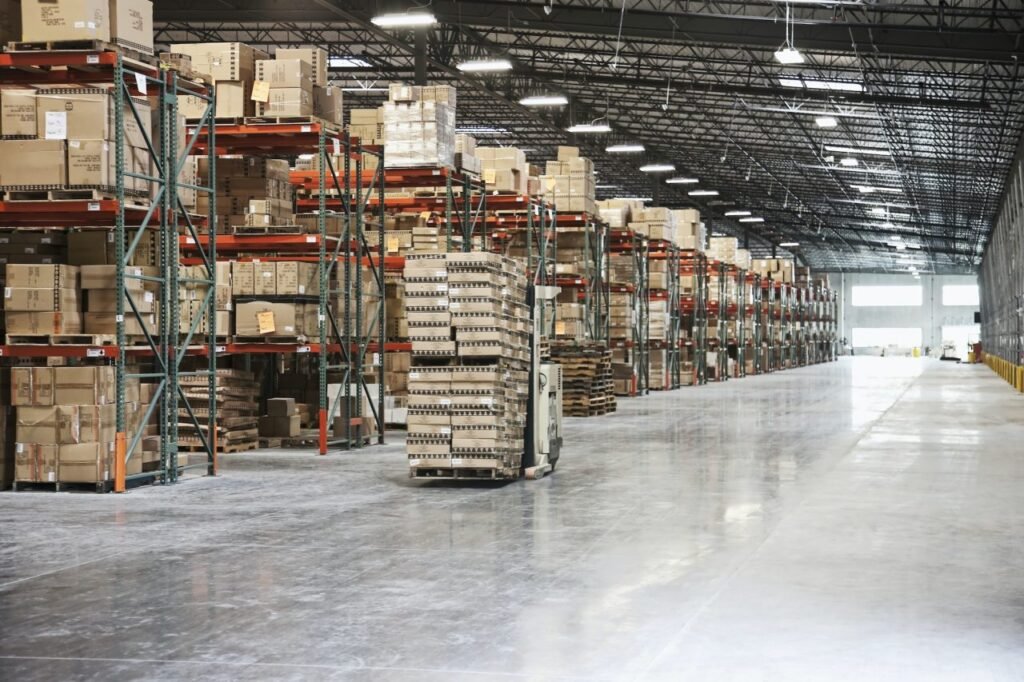
Pickup & Delivery
Streamline your logistics with our reliable pickup and delivery services, ensuring timely and efficient transportation from your doorstep directly to the destination, enhancing operational speed and reliability.
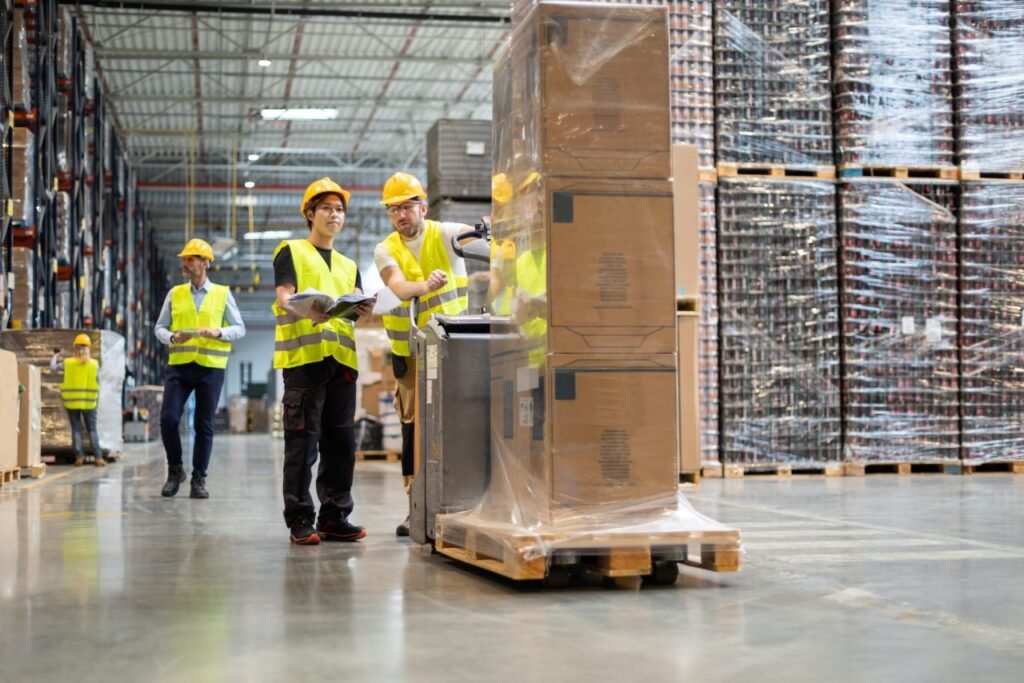
Warehouse
Utilize our secure and scalable warehousing solutions to safely store your goods, offering flexible storage options that adapt to your business needs, helping optimize inventory management and accessibility.
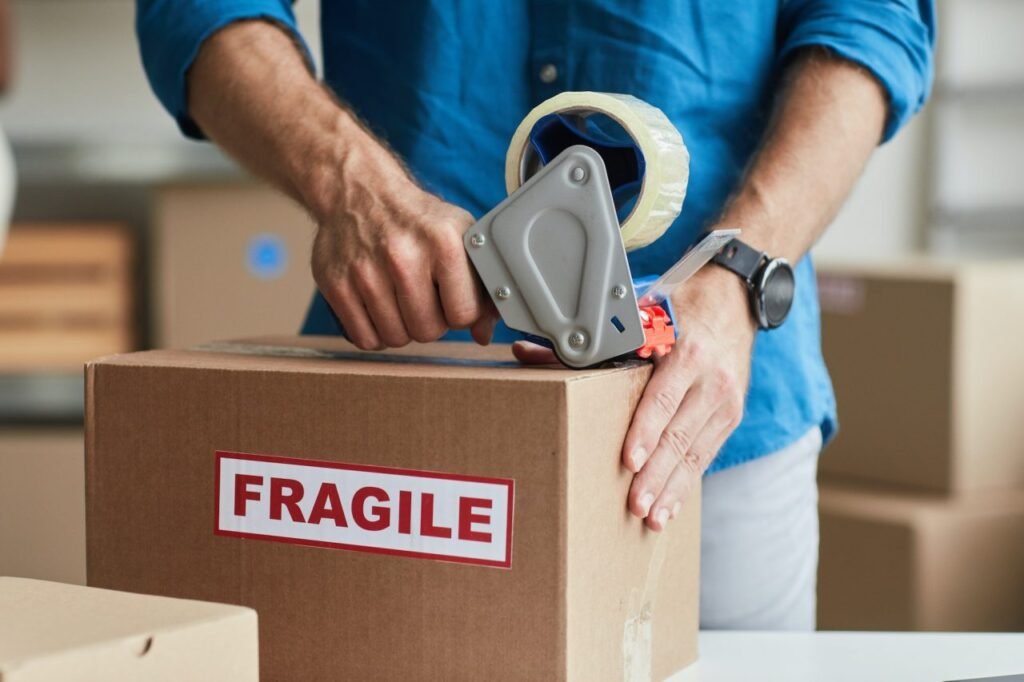
Cargo Insurance
Protect your investments with comprehensive cargo insurance, providing financial security and peace of mind against potential transit damages or losses, ensuring smooth and risk-free shipping operations.
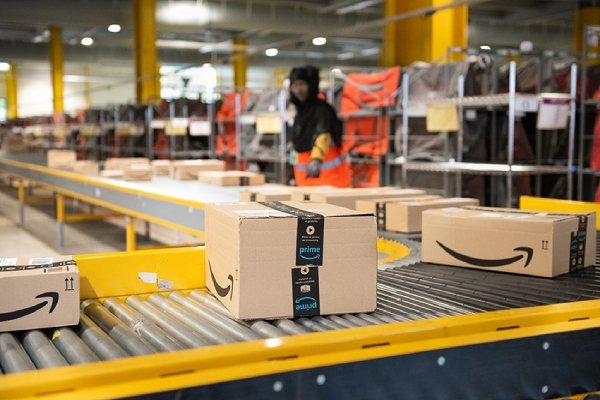
Shipping to FBA Warehouse
Facilitate seamless integration with Amazon’s network through our specialized shipping services to FBA warehouses, optimizing your fulfillment strategy, reducing handling times, and boosting your sales potential.

Custom Clearance
Expedite your international shipments with our expert custom clearance services, minimizing delays and ensuring compliance with all global trade regulations, simplifying your import/export processes.
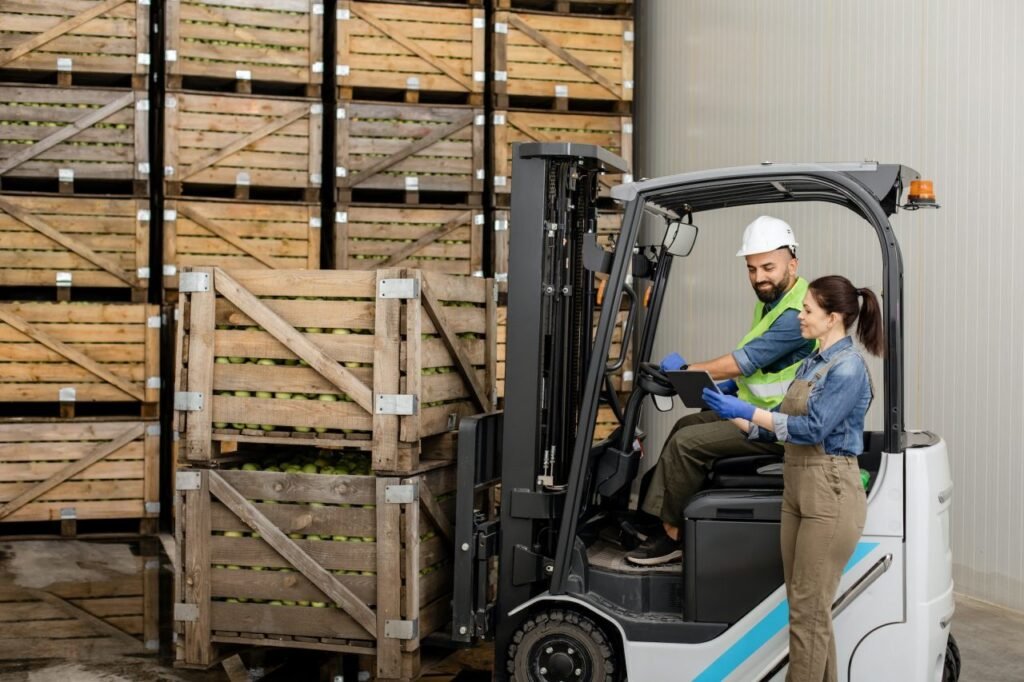
Loading Inspection
Ensure the quality and condition of your goods with our thorough loading inspections, securing shipment integrity and enhancing overall customer satisfaction by preventing potential issues during transit.

Express Shipping
Accelerate your delivery times with our express shipping options, ideal for urgent shipments that require fast and reliable service, helping you meet tight deadlines and exceed customer expectations.
Why Choose MBM ?
Experience the benefits of smooth moving
By choosing mbmlog, you gain competitive pricing, reliable and timely deliveries, and 24/7 expert support. Benefit from our 20 years of experience, seamless customs clearance, and free warehouse storage, ensuring your logistics are efficient, cost-effective, and worry-free.
20 Years Expertise
Mbmlog offers unparalleled logistics solutions. Our extensive experience ensures efficient, reliable services tailored to meet your diverse shipping needs.
Free Warehouse
Enjoy up to 30 days of free warehouse storage with mbmforwarding. Our secure, well-organized facilities ensure your goods are stored safely.
24hx7 English Speaking Expert Supports
We provides 24hx7 English-speaking expert support, ensuring seamless, efficient communication and immediate assistance for all your logistics requirements.
Cargo Insurance
Our company offers comprehensive cargo Insurance services, protecting your shipments with tailored insurance options, ensuring safety and peace of mind during transit.
On Tracking Services
mbmforwarding's on tracking services provide real-time updates on your shipments, ensuring you always have accurate information about your cargo's status.
Professional Custom Clearance
Our professional custom clearance services guarantee smooth, efficient processing. Our expert team handles all documentation, ensuring compliance with regulations.
